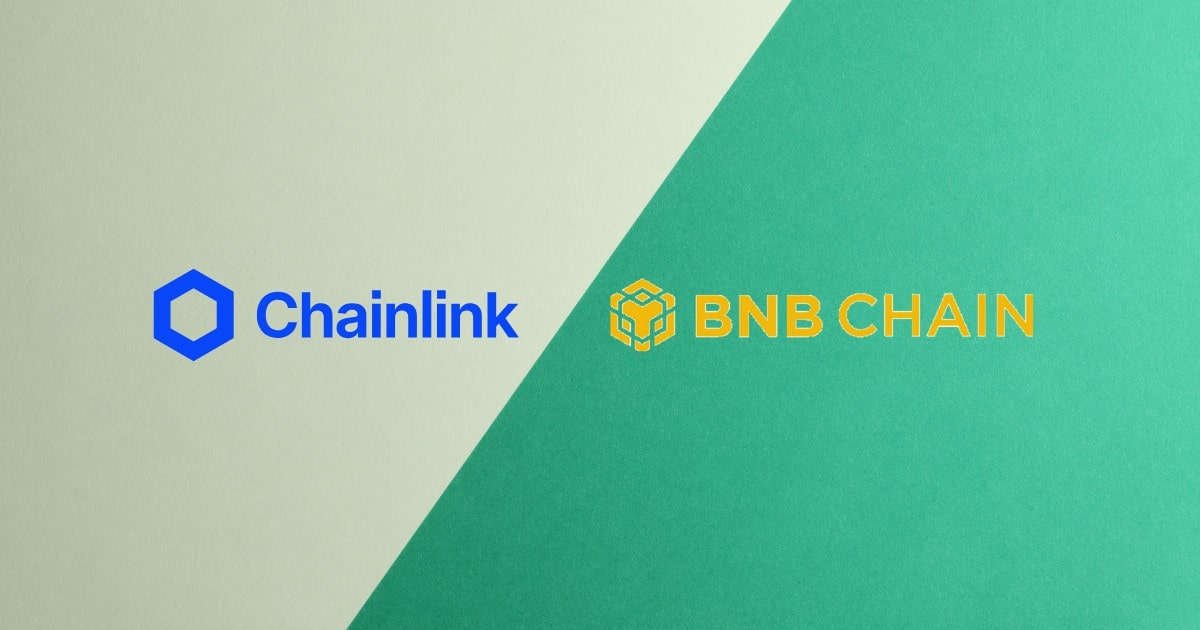BNB Chain Unlocks Access to U.S. Economic Data, Reshaping the Future of DeFi

Key Takeaways:
- BNB Chain integrates Chainlink’s data standard to bring official U.S. Department of Commerce metrics like GDP and PCE directly on-chain.
- Developers can create new financial primitives from macro-indexed tokens to prediction markets and risk systems powered by verified economic data.
- The move bridges TradFi and Web3, enhancing trust and driving innovation across the decentralized finance ecosystem.
Developing a paradigm shift, BNB Chain currently incorporates trusted U.S. governmental data into the smart contract. Such integration has the potential to remodel the reaction of DeFi protocols to macroeconomics.
Read More: BNB Chain’s 3.8M-Follower X Account Hacked: CZ Issues Urgent WalletConnect Phishing Alert

A New Level of Data Confidence
Chainlink Price Feeds: Chainlink already serves to provide market prices over-the-counter in a secure and reliable way. However, at this point, BNB Chain enables smart contracts to consume official U.S. macro statistics by extending its infrastructure.
The source of the data is the U.S. Bureau of Economic Analysis (BEA) and includes such indicators as the Gross Domestic Product (GDP), the Price Index of Personal Consumption Expenditures (PCE), and Real Final Sales to Private Domestic Purchasers.
By taking these figures on-chain, developers can no longer need to depend on third-party oracles to provide macro guidance that they can consult on government-verified figures in protocol logic.
Read More: Franklin Templeton’s $732M Benji Platform Now Live on BNB Chain
Possibilities of On-Chain Innovation
It is not just about the presentation of data this is about working infrastructure. Some plausible use cases:
- Macro-indexed tokens: A digital asset whereby its yield or redemption terms are regulated by GDP or inflation rates.
- Prediction markets: These markets allow users to bet on the future economic outcomes (e.g. quarterly GDP growth) based on data that can be checked to be verifiably linked with official sources.
- Endless futures and derivatives: Contracts indexed to government instrumentation as opposed to the hypothetical price feeds.
- Risk systems in DeFi: Systems that adjust the collateral requirements/ liquidation requirements or lending rates due to macro trends.
- Such inventions have the potential to enhance transparency, minimize oracle dependency, and allow the protocols to be more reflective of the real-world.
Chainlink and U.S. Commerce Dept Collaborate
The assimilation is involved in a collaborative initiative between Chainlink, Pyth, and the U.S. Department of Commerce to put macroeconomic data on-chain. The Chainlink system converts raw BEA releases into data feeds on-chain on various blockchains such as BNB Chain on its established decentralized oracle infrastructure. Feeds are usually reflective of the rhythm of off-chain government reporting monthly or quarterly.
The new data feeds were introduced on ten blockchains, not only Ethereum but also Avalanche, Arbitrum, and Optimism, and others. The implementation of BNB Chain is a crucial element since bringing its developer community to this macro layer means making it an even more attractive platform to more sophisticated DeFi.

A Push towards Real-World Data (RWD)
The move towards use of real world asset data (RWA) and macro signals is still growing. Investors and developers are now insisting on the protocols which are more responsive to economic reality without being based on purely speculative inputs.
This step by BNB Chain is a pointer: upper-level networks are now finding it valuable to put government-grade data directly into smart contract logic.
The token of the game’s Pyth also increased by almost 50 percent following the announcement that it would place U.S. GDP data on-chain. Chainlink has a strength in its developed oracle infrastructure and extent of integrations. This recent growth uses that base to expand its hegemony in connecting blockchain and the public institutions.
Although this implementation of the U.S. Department of Commerce data into BNB Chain through Chainlink marks a significant step in the right direction, a number of possible risks and difficulties still exist:
- Latency and reliability of data Government releases are slow in comparison to market data. Other protocols can have difficulties with quarterly updates.
- Governance & trust: Who controls the use or validation of data? Smart contracts are required to cover edge cases.
- Oracle space competition: Chainlink might be supplanted by new entrants or upgraded platforms in the oracle space.
- Adoption curve: Developers need to have macro data carefully integrated and thoughtful misuse may cause reactionary protocols to be unstable.
There will be costs incurred in fetching on-chain macro data. Projects have to strike a balance between update frequency and granularity and cost and experience to users. Due to the volatility of macro data and its lagging, a team ought to experiment widely with how would their system react were PCE PCE to increase 0.5% out-of-the-blue? What will they do with stale inputs?
The post BNB Chain Unlocks Access to U.S. Economic Data, Reshaping the Future of DeFi appeared first on CryptoNinjas.
